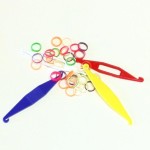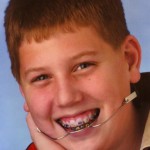Braces
When you first started wearing braces, your teeth are likely to feel sore for several days. Also, your tongue or cheeks can sometimes become temporarily irritated. Over-the-counter pain medicine usually relieves the discomfort and soreness. However, if anything sharp creates unusual pain, or if sores develop that don’t heal, please call or contact us.
Inspect your braces once a week to make sure that no parts are loose or bent. If a bracket or band became loose, or if you broke a wire, call or contact us. We will schedule an appointment to take care of your problem.
p
A palatal expander, sometimes known as rapid palatal expander or rapid maxillary expander, is an orthodontic device used to widen the upper jaw so that the lower and upper teeth will fit together properly. A palatal expander is most commonly used in growing children but it can be also used in adults often combining with surgery. After the upper jaw is widened, an orthodontic treatment with braces usually follows to straighten out all the teeth. A palatal expander is usually indicated when patients have narrow upper jaw, posterior crossbite, or dental crowding. The expander needs to be activated. Dr. Chang will give a detailed instruction concerning the activation. After achieving the required amount of expansion, the device is usually left in place for a few more months to allow the jaw bones become stable.
Eating Habits
Always use common sense when choosing foods during treatment. Avoid hard, chewy and sticky foods that might break your brackets or wires. It’s equally important to curb habits such as nail biting and pen or pencil chewing, because this can damage your braces.
– Eliminate Sticky foods like bubble gums, chewing gums, toffee, taffy, tootsie rolls, starburst chews,hard candies, jolly ranchers, lollipops, caramel, candies apples, spareribs etc.
Avoid hard, crunchy foods like pizza crust, nuts, ice, popcorn, chips, pretzels, corn on the cobs, and bagels.
– Minimize sugar intake: candies, ice cream, soda pop, sugar-based drinks, sugar-coated foods.
Elastics
Elastics (rubber bands) attach to your braces – exerting gentle, constant pressure that slowly moves teeth into correct positions. You must always wear elastics except when you eat and brush. You also need to change them a couple of times a day. If elastics aren’t always in place, your treatment will likely be prolonged. For best results, please follow these guidelines:
– Remove elastics ONLY when cleaning your teeth or eating.
ALWAYS carry a few extra elastics with you so that if one breaks, you can replace it right away.
If your elastics ran out between regular orthodontic visits, contact us. We’ll mail you more if you request them.
– If you forget to insert elastics, DON’T double up the next day. Just continue to wear it the way you were instructed. However, if you miss several days, please inform us at your next appointment. It’s important to let us know if there is any deviation from your treatment plan.
– Even if elastics don’t break, they lose elasticity. Therefore, changing elastics as instructed is important to ensure effective tooth movement.
Orthodontic headgear
Headgear is a very important part of the treatment for some patients. Headgear can help guiding the growth of the face and jaws. It also is used to move teeth into better positions or to prevent teeth from moving. Headgear attaches to your braces, creating forces that guide facial and jaw growth.
Maintaining constant use of your headgear will achieve the best results. If instructions on usage are not followed, treatment will take longer and our treatment plan may have to change.
Be very careful when removing your headgear. If the headgear is removed carelessly, the part that fits in your mouth and attaches to your teeth could injure your lips, cheeks, face and possibly your eyes.
– Never remove the headgear until the straps have been disconnected.
– Never lift the headgear over your face.
– Never wear the headgear when running or playing sports.
– Bring your headgear with you to every appointment
If it becomes soiled, Dr. Chang will tell you how it should be cleaned. Your teeth may be tender for the first few days of wearing your headgear. This tenderness will disappear as you adjust to the new pressures. Let us know if you continue to be uncomfortable for more than a few days. Follow the instructions exactly, and you will complete your treatment without any changes in your treatment plan.
Dental Care
Before any orthodontic treatment, your primary dentist should make certain that all cavities have been treated and the health of your gums and underlying bone are free of periodontal disease. Your family dentist should also schedule cleaning and cavity checkup visits regularly during your orthodontic care. We would like to reinforce the need to keep your regular visits with your family dentist because we sincerely care about your overall oral health and your dentist can help you maintain oral health.

